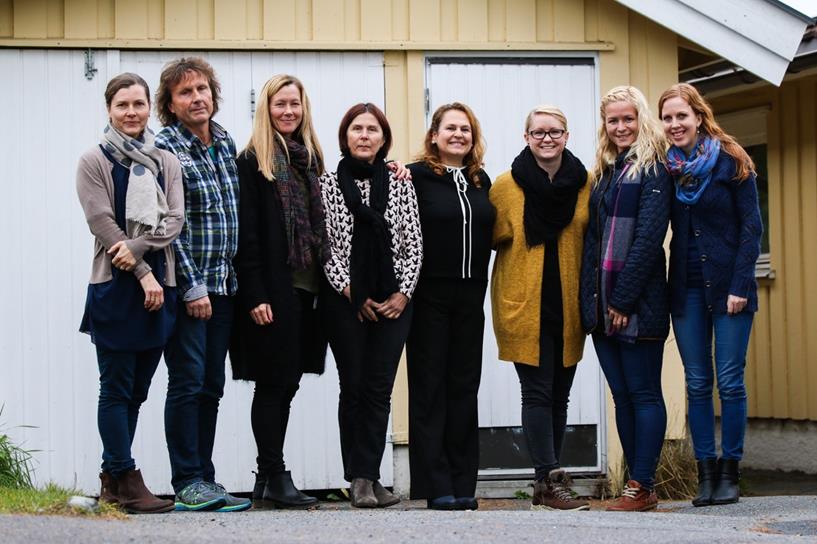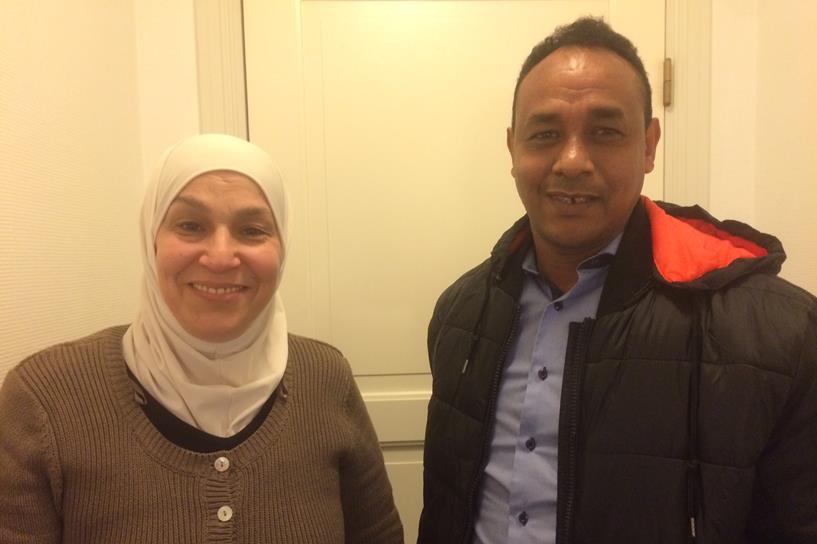Confident parents in a new country
What does being a good parent mean? The answer you would get to this question in Norway is not necessarily the same as you would get in another country. Mastering parenting roles can bring challenges for someone who has not lived in Norway for long.
- CHALLENGES: Mastering parenting roles in a new country
- MEASURES: A guidance programme for parents (ICDP) offered to refugees taking the introduction programme and other newly-arrived immigrants.
- RESULTS: Confident parents and children means a better start in the integration process
‘Being given information about what is and isn’t allowed isn’t enough if you don’t help parents to find out how to master their new roles as parents in Norway,’ says Narges Pourzia.
Pourzia is head of the refugee inclusion services in Rælingen municipality, which uses a guidance programme to give immigrant parents the confidence they and their children need. The programme is called ICDP, which stands for the International Child Development Programme.
The objective of ICDP is to improve the way in which children and young people are cared for and brought up by supporting parents and other caregivers in their carer role. It is generally the municipal authorities that arrange parent groups and a separate branch of the programme has been established for parents with a minority background.
Through the programme, parents are able to meet other parents in groups in order to share experiences about their relationship with their children. The goal is to help individual mothers and fathers to become confident parents by becoming aware of what they can do that brings about a positive effect on their children.
Good for children, good for parents
ICDP started up in Rælingen municipality in 2005 and they have experienced a positive impact from the programme on the integration process.
‘The method encourages reflections on value choices that also concern the parents’ own integration process. ICDP does not give them the definite answers,’ says Pourzia.
Many of the exercises are related to interaction with children and take an empathetic approach: ‘You’ve been a child yourself’. You can also share your experiences with other participants and reflect on what they need to do to succeed in Norwegian society.
‘The feedback we receive from the parents tells us that the course has also had a positive effect on the parents’ relationship,’ says Pourzia. She also finds that ICDP works particularly well as a preventive measure in child welfare cases and in cooperation with the child welfare service.
The refugee inclusion services also uses the method in its cooperation with volunteers, employers and other partners in addition to participants in the introduction programme.
Does your municipality want to use ICDP?
To use ICDP, you need to be a certified counsellor. ICDP counsellors are entitled to use the programme to guide parents and other caregivers. In Rælingen municipality, the refugee inclusion services is responsible for training and certification of municipal authority employees.
Compulsory part of the introduction programme
The participants in the introduction programme who are parents, planning to have a family or wish to work with children and young people take ICDP as part of their introduction programme. The course comprises 12 group meetings, each of which counts as 1.5-2 hours of the introduction programme.
Rælingen municipality organises courses for parents with a minority background, which are usually held in the evening. Childminders are provided for those who need one. The refugees who take the course as part of their introduction programme have classes after their Norwegian language class during the school day. The participants receive a course diploma on completion of the programme.
ICDP is not only used as a compulsory course in the introduction programme, however.
‘Most employees in the refugee service are certified ICDP counsellors who actively use the method in their guidance of parents who are reunited with their children. They also use it with families who need extra guidance,’ says Pourzia.
Same linguistic background creates trust
Rælingen municipality organises its courses by groups of languages and they always have two counsellors. One counsellor is employed by the municipality and the other has a minority language background.
If possible, the municipality uses minority language counsellors with the same mother tongue as the group they work in.
‘Using a counsellor who has the same background as the participants in terms of language and experience creates trust,’ says Pourzia.
Many of the minority language counsellors have other jobs, however, and are not always free to take on the assignment. In such case, it is possible to bring in counsellors from other municipalities or use an interpreter if no counsellor with the relevant minority language is available.
‘We take great care when choosing an interpreter. It is important that the same interpreter is used throughout the course,’ says Pourzia.

Mixed roles?
The refugee inclusion services in Rælingen municipality has five employees who are certified ICDP counsellors. They have different backgrounds: three are programme advisers in the introduction programme, one of these with a focus on job creation schemes, and two are public nurses. New programme advisers and one care worker are also undergoing certification.
There are also many other municipal employees from kindergartens, health centres, the child welfare service, the Educational and Psychological Counselling Service and NAV who are certified ICDP counsellors.
The employees therefore have different roles that they need to fulfil. They normally work as case officers and refugee consultants, but as ICDP counsellors, they must meet the person and not the introduction programme participant.
To this, Pourzia answers that the method used in the programme is what is known as relation-oriented. This means that when the employees provide guidance in the course, they also develop a relation to the participants that is useful in the follow-up and adaptation of other measures for the participant in the introduction programme.
‘We find that ICDP gives us many more advantages than disadvantages in relation to refugees,’ says Narges Pourzia.
Becoming better parents
Safaa Al haj Said and Misgna Abrehe are participants on the course in Rælingen municipality. They have only been in Norway a short time and do not speak much Norwegian. They use an interpreter in the course.
Safaa has a work placement at a school. She uses much of what she learns from the course in her placement and observes the teacher’s approach to the children at school. Safaa has a background as a teacher and would like to train to become an ICDP counsellor.
‘The course helps parents to establish good routines,’ says Misgna Abrehe.
Misgna has three children who live with him and one abroad. After starting the course, he spends lots of time with his children. He helps with their school work and talks to them about other things the children are concerned with, such as friends and social media.

Other courses in Rælingen
Rælingen municipality also offers other courses for refugees, several of which are compulsory measures in the introduction programme, including work training and courses related to housing, relationships and family planning.
Other examples are courses in cultural understanding, self-help methods, simple trauma psychology and coping with depression.
The refugee team’s interdisciplinary expertise has contributed to the municipality’s ability to develop and offer these courses. The team uses very little costly consultancy assistance.
Contact person in Rælingen municipality
Narges Pourzia, section manager of the refugee inclusion services
Phone: (+47) 48 16 75 12